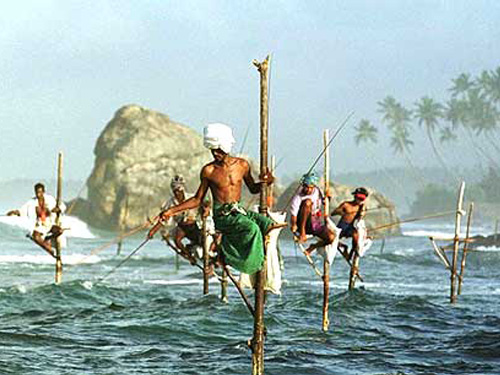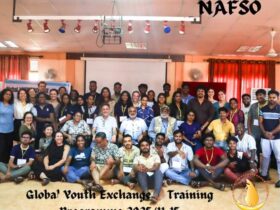
In the wake of the 2004 tsunami, which also destroyed the coastlines of the Kalpitiya peninsula and its surrounding islands in Sri Lanka, a handful of decision makers and investors took advantage of the ‘state of shock’ to push through market-driven reforms and tourism development plans under the rubric of the Task Force for Rebuilding the Nation (TAFREN).
While fishing communities were still struggling to recover from the physical damages and psychological impacts of the tsunami, a quarter of the Kalpitiya peninsula and its surroundings, was grabbed by Sri Lankan and foreign investors, military and government institutions to develop luxury tourist resorts. In many instances, the land acquisitions also extend into the adjacent water bodies and give preferential rights to the marine resources to the new owners. More than 2,500 families have been evicted from their lands and denied access to the fishing grounds. A local leader stresses that “fishers could even be charged with illegal trespassing. For instance, the barbed wire fences erected along the coastal line by the Hasan Gaate company’s Bay Watch Eco Hotel have prevented them from entering the coastal belt for fishing.”
Kalpitiya is home to some 65,000 people and small-scale fishing is by far the most important livelihood in the area. Fishing culture and traditions have become deeply entrenched through many generations of fishing, and the approximately 13,000 small-scale fishers – one in every five people in the area – provide vital food for almost every single family.
Fishers feel strongly connected to these lands and waters and their livelihood activities as these are a crucial part of their crucial identity. As a fisher from Uchchimune Isle explains, “we have no other alternative life. We cannot give up our livelihood… we have bonded our lives with the isle.” Another fisher from Sinnanunnakkarei Isle adds, “we are not prepared to leave our village for any reason. Where can we go? Fishing cannot be done if we are re-settled to the interior lands. We are not prepared to accept their so-called offer. The only trade we know is fishing and we need our settlements to continue with our livelihood.”
The National Fisheries Solidarity Movement (NAFSO) is playing an important role in supporting the fishing communities in their struggles to reclaim their land and their access to the fishing grounds. Mobilisation for collective action, research, legal assistance and awareness campaigns are some of the key strategies applied by NAFSO, and together with local organisations and communities, the solidarity movement has convened several protest marches, people’s hearings or tribunals, and lobby campaigns. Herman Kumara, the convenor of NAFSO observes, “the political consciousness of fisher people is on the rise and this of greatest importance in the struggle against the grabbing of the land and the sea.”


Find the video Link for above issue
http://youtu.be/OmXd8uGtBKM